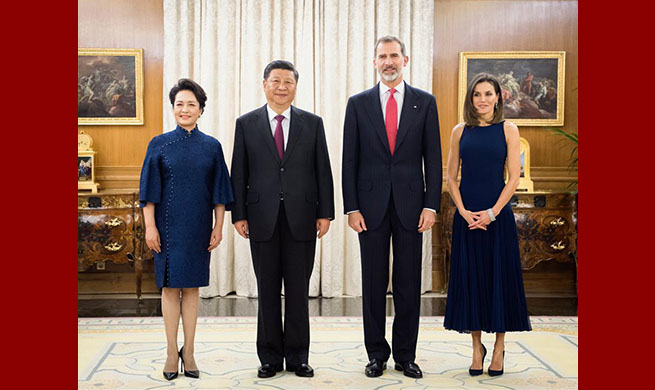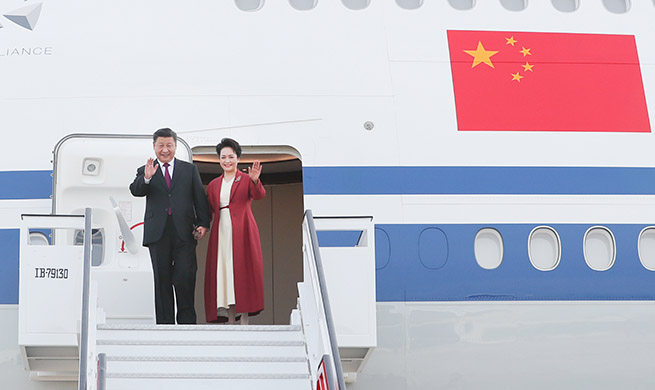BEIJING, Nov. 28 (Xinhua) -- China will soon release details of a new policy on allowing more cross-border e-commerce purchases, the Economic Information Daily has reported.
Some 63 categories of products will be added to the list of duty-free goods via cross-border e-commerce platforms, covering more high-demand consumer goods such as electronics, small home appliances, food and healthcare products, according to the newspaper.
Goods on the list have so far enjoyed zero tariffs within a set quota and had their import VAT and consumer tax collected at 70 percent of the statutory taxable amount.
From Jan. 1, 2019, the annual quota on cross-border e-commerce purchases for individual buyers will rise to 26,000 yuan (about 3,741 U.S. dollars) from 20,000 yuan, according to a meeting of the State Council held earlier this month.
The tax-free limits on single transactions will increase to 5,000 yuan from 2,000.
The new policy will be applied to cross-border e-commerce pilot zones in another 22 cities including Beijing, Nanjing and Shenyang.
"The new policy will boost confidence of cross-border e-commerce companies, since it enhances policy certainty," Zhang Li, a researcher with the research institute of the Ministry of Commerce (MOC), told the newspaper.
"The expanded quota will win back consumers who are fond of shopping overseas and unleash more spending power."
Liu Peng, general manager of Tmall Global, Alibaba's cross-border e-commerce platform, said the new policy brought stability and continuity. In the past four years, Tmall Global has introduced nearly 19,000 overseas brands from 75 countries to Chinese consumers. More than 80 percent of them were newcomers to the Chinese market.
The move came after the Chinese leader promised to boost imports by lowering tariffs, improving customs clearance, reducing the cost of importing goods and accelerating cross-border e-commerce.
Chinese consumers have become increasingly drawn to foreign brands via e-commerce platforms. Retail imports via those platforms reached 56.6 billion yuan in 2017, up 75.5 percent year on year. In the first 10 months this year, the import value rose 53.7 percent year-on-year to reach 67.2 billion yuan.
In 2017, cross-border e-commerce consumers accounted for 10.2 percent of China's total e-commerce consumers, up from 1.6 percent in 2014, according to a research report on China's import market jointly released by China Chamber of International Commerce, global auditing and consultancy firm Deloitte, and Alibaba's Aliresearch.
Since 2016, Chinese consumers have become increasingly prone to high quality products in addition to products for basic living. Sales of digital home appliances, cosmetics, clothing, healthcare products and food have rapidly increased online.
"The new policies will not only make cross-border trade more convenient, but also meet consumers' upgraded needs and improve regulation and supervision of cross-border e-commerce imports," said Wang Jian, a professor with the University of International Business and Economics.
Li Mingtao, president of a research institute affiliated to China E-commerce Research Center, said he expected more resources and opportunities would flow to the cross-border e-commerce industry, generating more business opportunities.
"It shows China means business in opening up and reform," Li added.

















